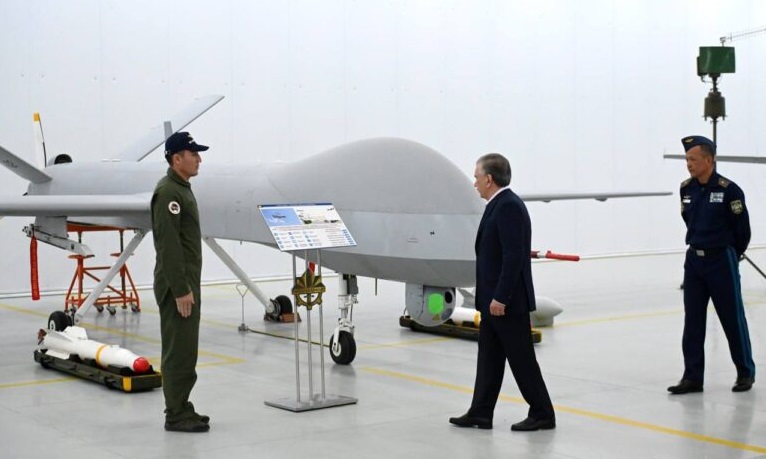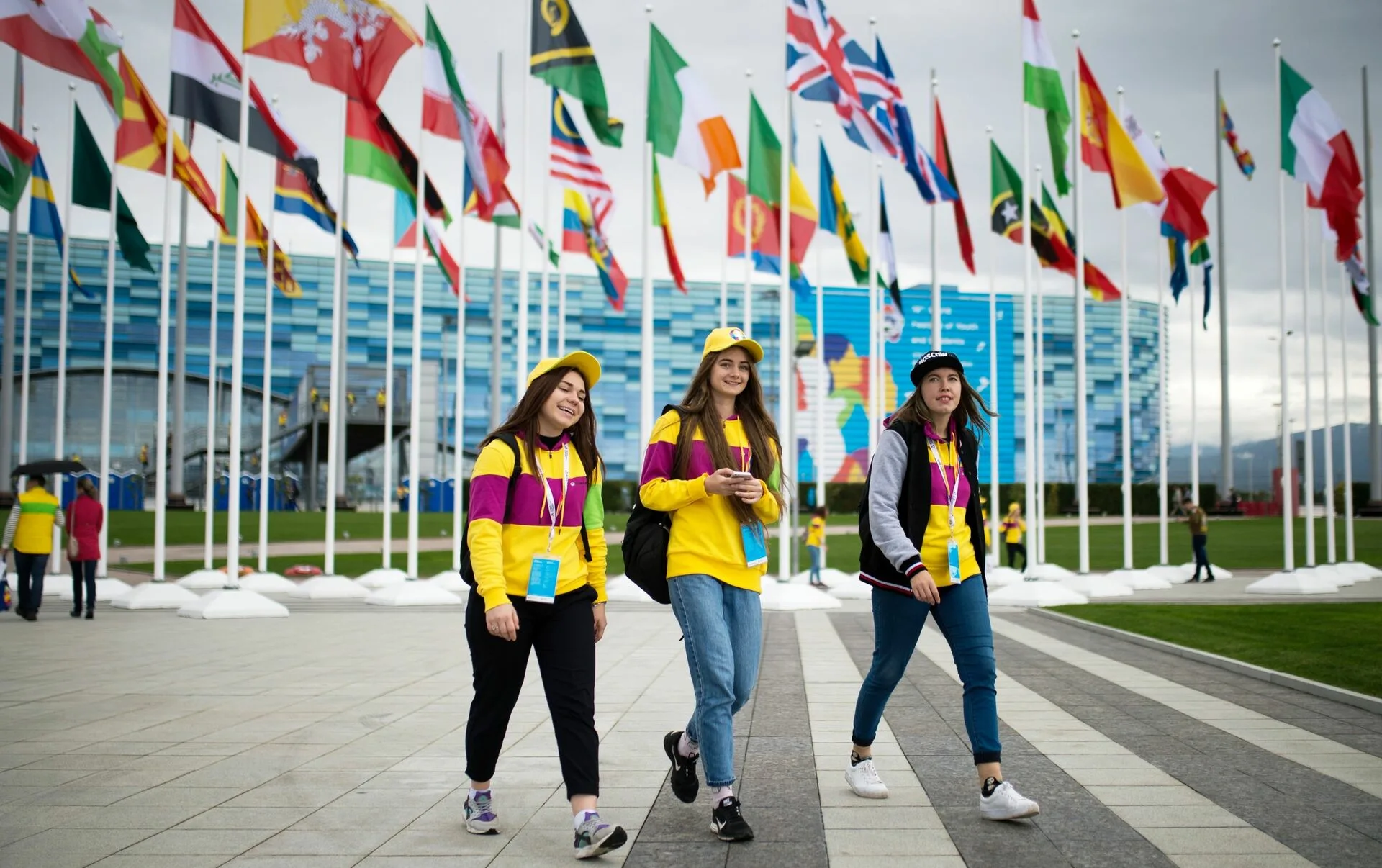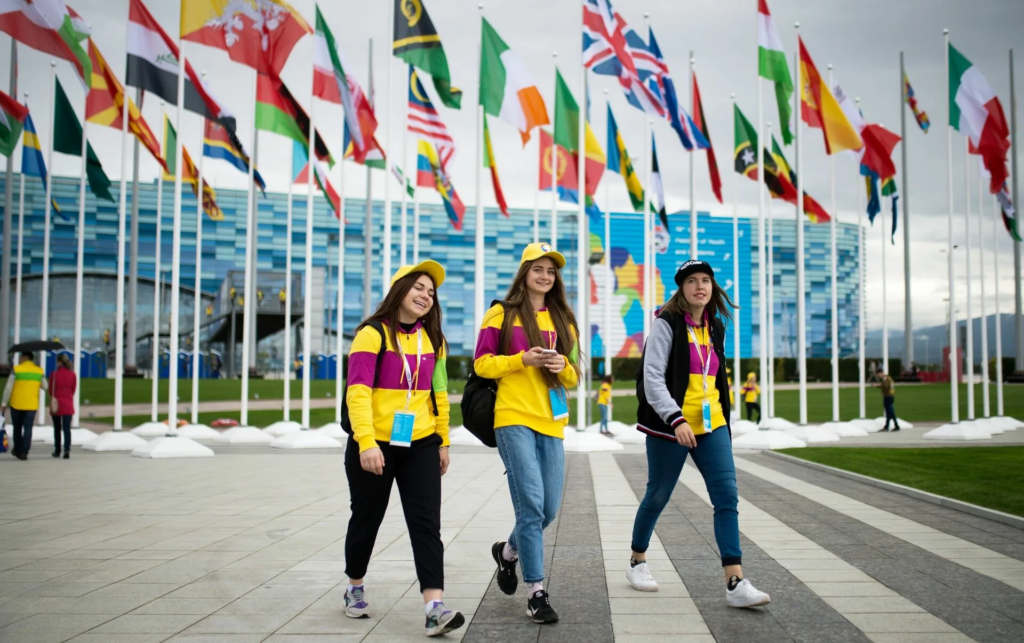
The path to a multipolar world, self-realization of youth for the sake of the future and Russia’s openness to a dialogue with all countries are the main agenda highlights of the educational marathon Knowledge.First, which was held from March 2 to 6 on the sidelines of the World Youth Festival in Sochi. Over five days, 137 lecturers shared their knowledge with young leaders from 188 countries, of which 20 were representatives of Austria, Afghanistan, Brazil, Germany, India, Italy, Serbia, Turkey, and Thailand. With their speeches, discussions, and master classes, the lecturers inspired over 5,000 young participants who gathered at the venue of the Festival.
As the members from the foreign delegations noted, the marathon Knowledge.First has shown that Russia is open to cooperation, that it is truly a country of opportunity. Speeches by outstanding experts helped young people learn about trends, promising areas, and important projects in which they can take part and contribute to their development. Russians learned more about international initiatives and had the opportunity to meet their favorite idols.
“The marathon has become one of the main events of the World Youth Festival, a place for dialogue between young leaders and mentors from around the world. During their presentations, the lecturers talked about the key values of our country, unity, and the importance of intercultural and interethnic dialogue. What is especially important is that the marathon participants received honest, sincere answers to their questions… I am sure that from the World Youth Festival has brought knowledge that in the future will help young participants make a contribution to building a fair, safe multipolar world,” noted Maxim Dreval, summing up the results of the Knowledge.First marathon.
The growing number of BRICS members and the powerful potential of their educational systems open up ample opportunities for the exchange of experience, both between the teaching staff of educational institutions and between students.
An important aspect for expanding such interaction is supporting the development of camps for children and youth as a unique format of out-of-school education and socialization. Fahrettin Gozet, President of the International Camping Fellowship, Turkey, elaborated on this.
“Russia is a country that ranks first in the number of children’s camps. Among them are “Artek”, “Orlyonok”, “Smena”, “Ocean”. When I came to Sochi after the Olympic Games, I was very inspired by the idea of the Sirius camp, by the fact that all these talented and hardworking youth received a platform to gather together. And all over the world in different countries I talked about this camp, because it is a wonderful project, said Fahrettin Gozet.
The Knowledge.First marathon program was supplemented by the VK Day lecture hall, where stand-up comedians, athletes, and musicians popular among young people talked about humor, the development of social networks, shared the secrets of creating interesting content, and told how to make your dream come true and achieve popularity.
All six sites of the Marathon were filled with young people, the guys actively communicated in different languages, took pictures with speakers, shared impressions with journalists from major media outlets, discussed the speeches they heard. The marathon tracks were in tune with the meanings of the Festival: “Responsibility for the fate of the world”, “Multinational unity”, “A world of opportunities for everyone”, “Let’s save the family in the name of children and peace” and “We are together with Russia”.
Along with the educational marathon Knowledge.First, within the framework of the educational program of the World Youth Festival, the Knowledge Society organized the intellectual tournament Knowledge.Game with the participation of scholars from different countries, screenings of performances together with the Tavrida Art Cluster, a film lecture Znanie.Kino, where spectators from all over the world got acquainted with legendary Russian films and discussed them with famous actors and directors.
Also, a multimedia exhibition of the National Photo Competition Knowledge.Russia was organized for Festival participants, giving the opportunity to see the main achievements of modern Russia and immerse themselves in their atmosphere using augmented reality technology.
Now, on March 10, the regional program of the Russian Society “Knowledge” starts as part of the World Youth Festival, which will be held until March 17 in all eight federal districts of the Russian Federation. The children will enjoy more than 200 educational events, including speeches, discussions, and master classes by authoritative lecturers from various fields. The program will unite Russians from regions of the country and foreign participants of the World Youth Festival, who will travel across Russia as part of several teams. Guests from different countries will have the opportunity to get acquainted with their Russian peers, the culture of our country and the achievements of the regions.







